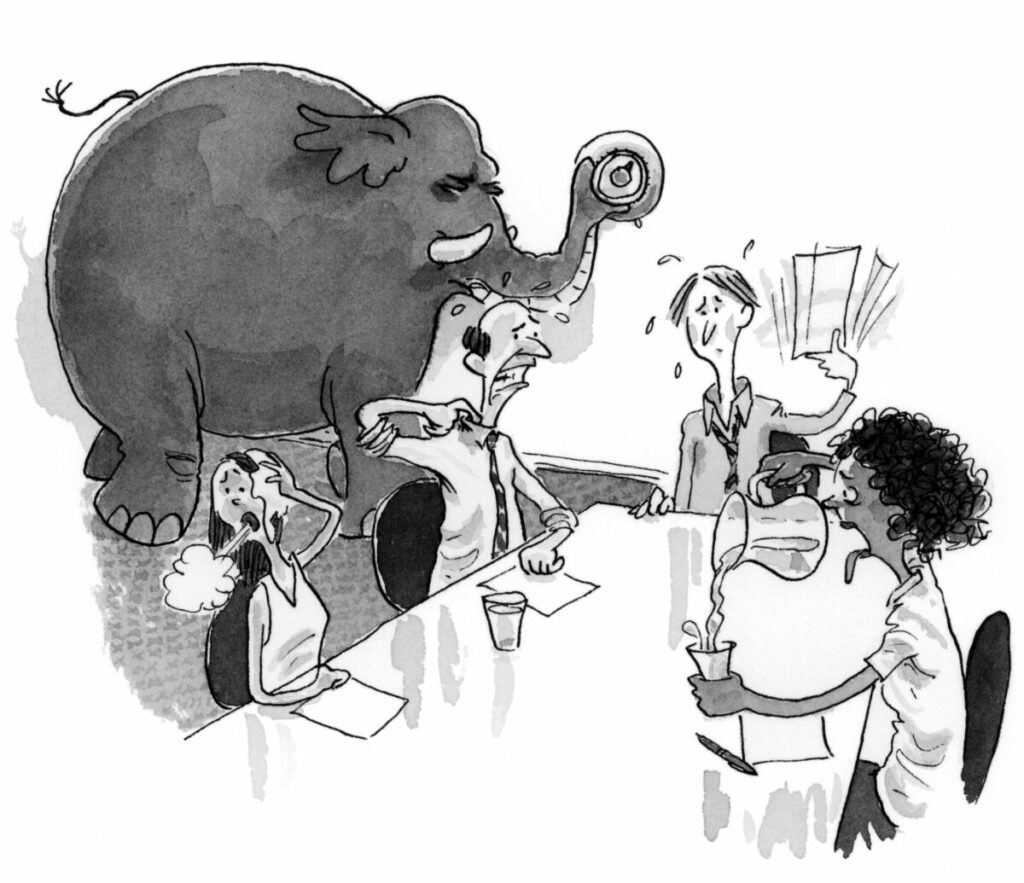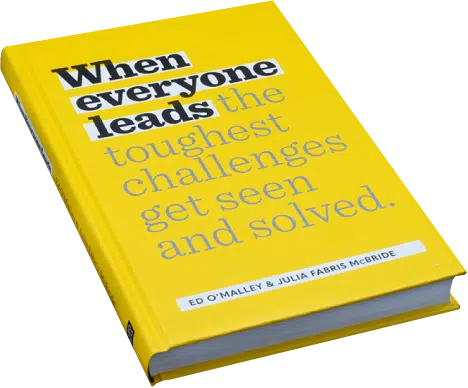Discomfort is a Key Ingredient of Progress
People love to be comfortable. Think of all the ways we work as humans to add comfort to our lives. I need to look no further than my pre-teen daughter who goes to great lengths to put any money she receives or earns toward creating a spa-like atmosphere in her room. Pillows, sound machines, soft lighting—it’s really quite the space. Whether we realize it or not, the systems we are a part of crave comfort too. Systems work hard to prevent things like loss, risk, disturbance and conflict. When things are going really well, a comfortable system can be very efficient. But, because people create systems, quite often that comfort also lets us avoid difficult work. It leads to systems where the elephant in the room is rarely discussed, we’re content to work in silos, and when someone mentions some tough work that we might need to do, it sends us or others into a defensive fight or flight state.
If you take the temperature of your system, and you buy that it will take the right level of heat to make progress on adaptive challenges, then there are times you’ll need to raise the heat. In other words, you’ll need to do something that makes it more uncomfortable for people to stay in the status quo rather than engage or work in a new way. Remember the skillet metaphor. If the heat is too low, we don’t ever get the delicious new outcome we’re aspiring to. If we add too much heat for too long, we burn up our chances of bringing others along in the work. We’re searching for that middle space where productive work on adaptive challenges can happen.

KLC Third Floor Research suggests there are ways to widen that productive zone within an organization. Engagement with a leadership language like ours encourages tough interpretations, experimental activity and powerful questioning will, over time, lend itself to a culture where discomfort for the purpose of potential progress will not only be tolerated, but sought out.
Heat is needed for this change because:
- People don’t change until things get uncomfortable
- The right amount of heat captures people’s attention
- Tough situations create opportunities for learning
Adaptive work is heart and gut work. When you know deep down that important questions aren’t being addressed, progress is too slow or there aren’t enough people involved in the work, you might consider these strategies to raise the heat:
- Say what others won’t
- Disrupt norms
- Create structures and assign responsibilities
- State the consequences of inaction
Skillful intervention will always require heat raising activities. Getting used to uncertainty and conflict and leaning into leadership activities that raise the heat to a productive level will be key to seeing the change your system desperately needs.


